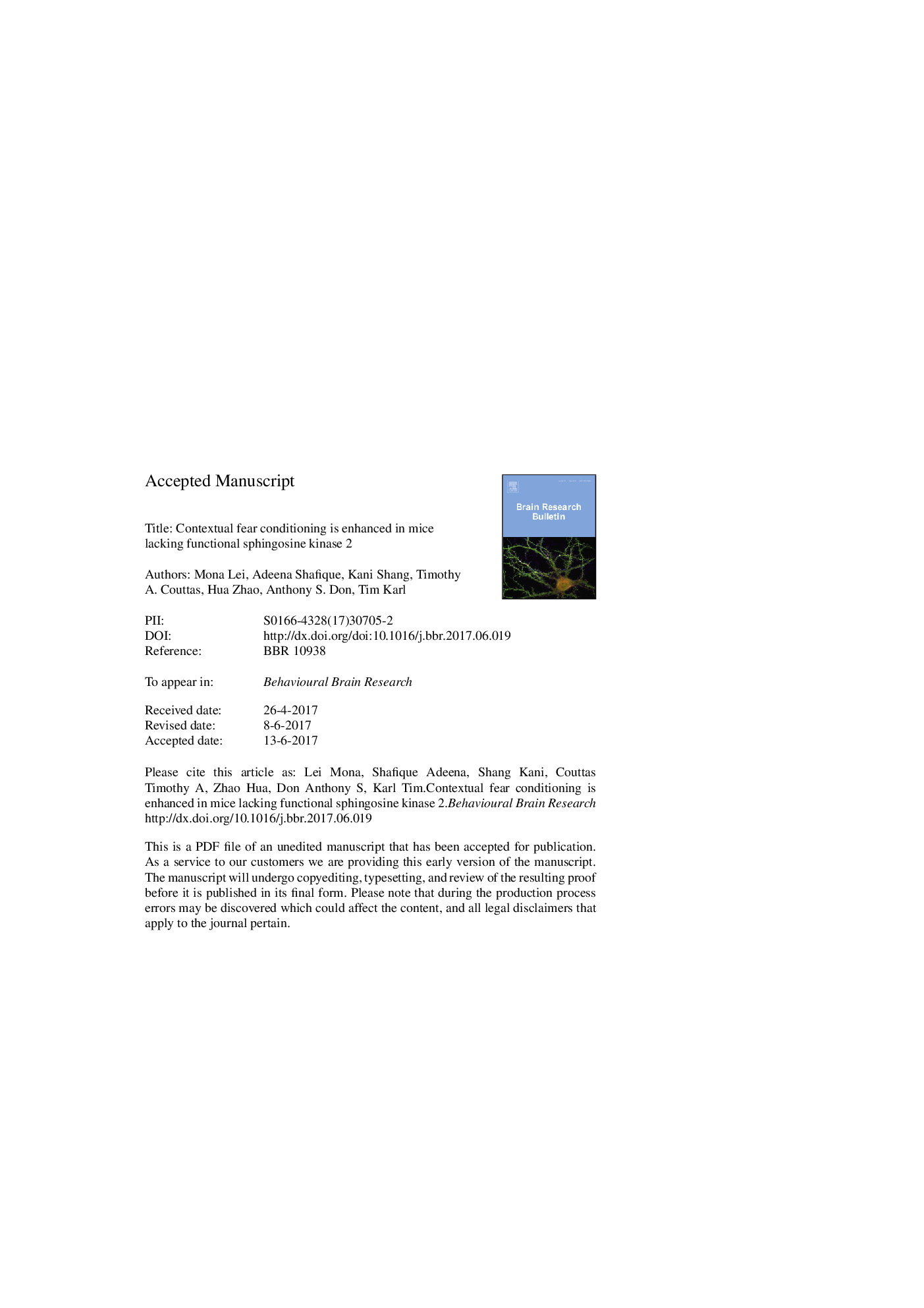ترجمه فارسی عنوان مقاله
تهویه مطبوع در موش هایی که دارای اسپینگزین کیناز 2 نیستند افزایش یافته است
عنوان انگلیسی
Contextual fear conditioning is enhanced in mice lacking functional sphingosine kinase 2
| کد مقاله | سال انتشار | تعداد صفحات مقاله انگلیسی |
|---|---|---|
| 131047 | 2017 | 25 صفحه PDF |
منبع

Publisher : Elsevier - Science Direct (الزویر - ساینس دایرکت)
Journal : Behavioural Brain Research, Volume 333, 30 August 2017, Pages 9-16
ترجمه کلمات کلیدی
اسپینوزین 1-فسفات، اسپینوزین کیناز 2، رفتار - اخلاق، یادگیری و حافظه، بیماری آلزایمر، مدل موس دست کشیدن،
کلمات کلیدی انگلیسی
Sphingosine 1-phosphate; Sphingosine kinase 2; Behaviour; Learning and memory; Alzheimerâs disease; Knockout mouse model;

